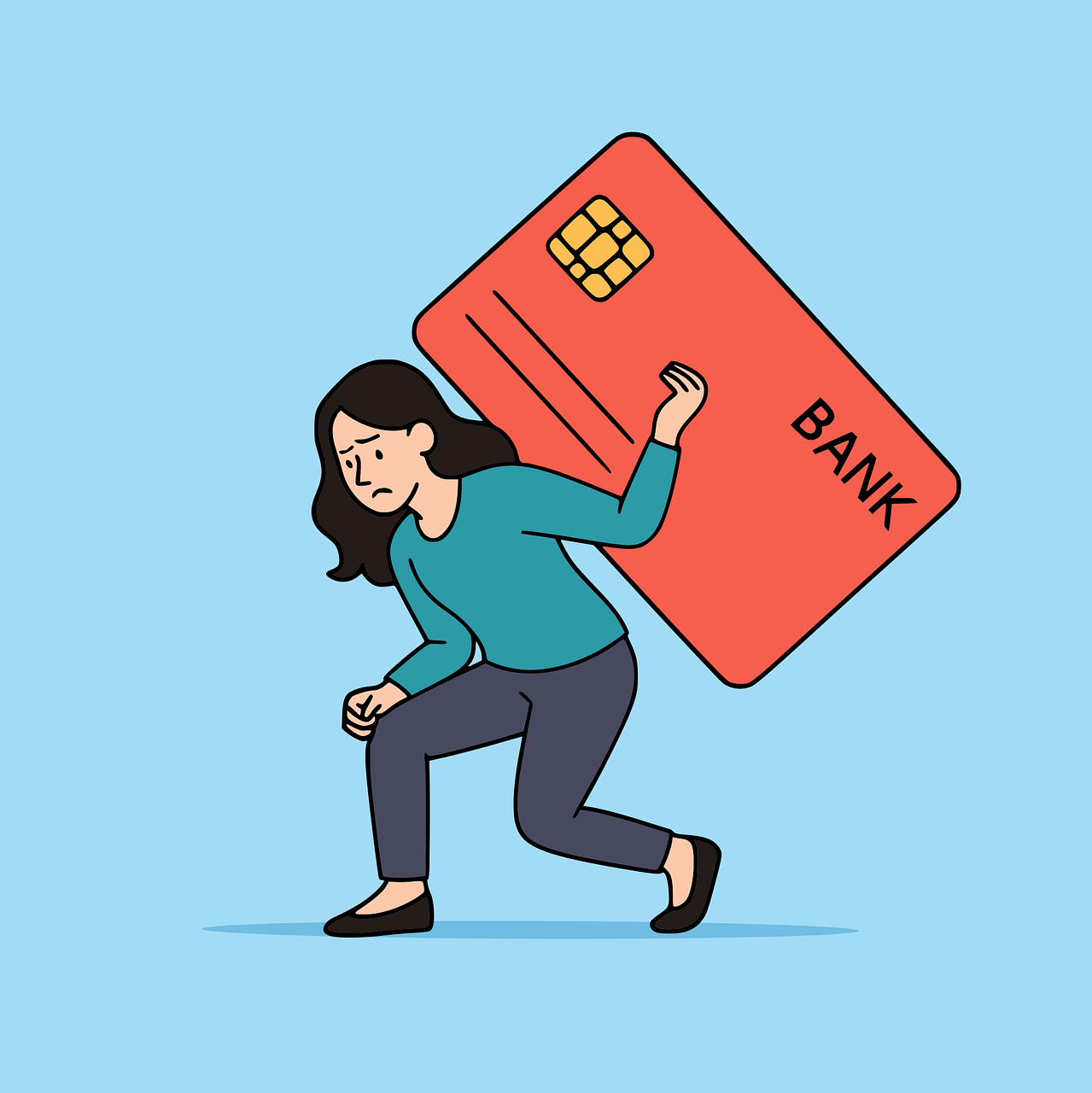Financial worries can feel like an invisible weight, pressing down on minds and hearts alike. In today’s economic landscape, where the cost of living continues to rise and unexpected expenses lurk around every corner, it’s no surprise that money stress is a prevalent concern. Many adults find themselves trapped in a cycle of anxiety, wondering if they’ll make it through the month or face yet another setback. This persistent tension doesn’t just affect bank accounts—it infiltrates daily well-being, impacting sleep, relationships, and overall mental health. Recognizing these challenges is the first step toward regaining control and discovering a calmer, steadier relationship with money.
Far from a mere numbers game, financial stress often holds deeper emotional and behavioral roots. Understanding these subtleties paves the way for manageable strategies that align finances with personal values and mental calm. Practical adjustments, like tracking spending or setting small savings goals, can shift the balance from uncertainty toward empowerment. Alongside these, mindfulness techniques and compassionate self-reflection foster resilience amid financial complexities. Together, these approaches offer pathways to not only cope with money stress but to improve mental peace in tangible, lasting ways.
Recognizing Money Stress: How Financial Pressure Impacts Mental Health
Financial stress stems largely from ongoing worries about money—whether it’s running short on cash, grappling with debt, or the anxiety of unplanned expenses. Around three-quarters of U.S. adults report feeling the sting of inflation, which disproportionately burdens those with limited financial flexibility. Mark Hamrick, a senior economic analyst for Bankrate, points out that many people live paycheck to paycheck, without savings for emergencies or retirement. This precariousness fosters persistent stress, interfering with one’s ability to focus, sleep, and maintain overall mental health.
When financial concerns dominate thoughts, it’s common to experience a range of symptoms:
- Difficulty concentrating: Worrying about bills or debt creates mental clutter that hinders day-to-day decision-making.
- Irritability and frustration: Constant stress can wear down patience and create relational tensions.
- Physical symptoms: Headaches, rapid heartbeat, and digestive issues often accompany chronic money stress.
- Sleep disturbances: Nearly half of adults have reported losing sleep over financial troubles, deepening fatigue and impairing immune response.
- Increased substance use: Some may turn to alcohol or other substances as a stress release, which can exacerbate problems.
The psychological tax of financial insecurity often manifests as anxiety and depression, especially in individuals already vulnerable to mental health challenges. The link between money stress and depression was reinforced in a 2022 review of numerous studies, highlighting an undeniable connection. Moreover, economic hardship can also affect interpersonal relationships, increasing conflict and stress between partners. This creates a cycle where mental health issues and financial troubles feed into each other.
| Financial Stress Symptom | Typical Manifestation | Impact on Mental Health |
|---|---|---|
| Difficulty Concentrating | Inability to focus on work or daily tasks due to financial worry | Reduced productivity, increased anxiety |
| Sleep Problems | Frequent awakenings or insomnia over money concerns | Fatigue, lower immune function, worsened mood |
| Physical Symptoms | Headaches, stomach issues, rapid heartbeat | Physical health decline, increased stress hormones |
| Relationship Conflicts | Arguments or withdrawal linked to financial strain | Isolation, increased emotional distress |
Understanding these effects reinforces the importance of addressing financial stress head-on—not just to balance bank accounts, but to preserve mental peace.

Changing Money Mindsets: How Reframing Beliefs Can Reduce Financial Anxiety
The way individuals think about money often shapes their experience of financial stress. Childhood lessons, cultural backgrounds, and personal experiences mold beliefs that may unintentionally fuel anxiety or guilt around finances. Farnoosh Torabi, a financial expert, stresses that attaching one’s self-worth to net worth is a major barrier to mental peace. When people view money as a measure of success or value, financial setbacks can undermine confidence and increase shame.
Reframing these beliefs can be empowering. Torabi recommends reflecting on formative money messages by asking:
- What lessons about money did I learn growing up?
- What attitudes did I observe in my family regarding spending and saving?
- How do these early beliefs influence my current financial actions or feelings?
This mindful exploration isn’t about assigning blame but becoming aware of patterns. For example, someone raised in a household where money was scarce might develop a scarcity mindset, leading to chronic worry. In contrast, recognizing and gently challenging these patterns opens space for healthier relationships with money.
Additionally, shifting the focus toward values beyond financial figures helps cultivate peace. Instead of obsessing over every dollar, prioritizing time with loved ones, hobbies, or personal growth can bring richer fulfillment. When control feels out of reach, choosing where to place attention can restore a sense of agency. This shift also aligns with findings from mental health specialists who encourage free or low-cost joyful activities as part of stress relief.
| Unhelpful Money Beliefs | Reframed Perspective | Benefit to Mental Peace |
|---|---|---|
| “Money defines my worth” | “My value extends beyond financial gains” | Reduced shame and self-criticism |
| “I must have perfect control over money” | “I can adapt and learn from financial ups and downs” | Greater resilience to setbacks |
| “Scarcity means doom” | “I can make mindful choices even with limited resources” | Empowerment and calmness |
By gently shifting perspectives, individuals become less captured by fear and open to strategies that nurture both mental and financial health.
Practical Steps to Calm Money Anxiety Through Better Financial Management
Acquiring a clearer picture of one’s finances is critical in easing money-related stress. Knowing where money goes, setting realistic goals, and making an actionable plan can transform worry into proactive control. Embracing simple financial habits builds confidence over time, reducing anxiety by making finances more predictable and manageable.
Key practical strategies include:
- Track spending: Use apps or spreadsheets to monitor monthly expenses; this helps identify unnecessary costs and highlights where adjustments can be made.
- Create a budget: Align income with fixed costs, debts, variable spending, and savings while ensuring flexibility for unexpected expenses.
- Consolidate and negotiate debt: Explore options like zero-percent balance transfer cards or negotiating settlements with creditors to reduce interest burdens.
- Set financial goals: Define clear, achievable aims such as building an emergency fund or paying off high-interest debts to foster motivation.
- Automate savings: Scheduling regular transfers into savings helps build a buffer without requiring constant effort.
- Seek additional income: Look for side gigs or monetize skills to increase financial breathing room in tight months.
| Financial Action | Example | Effect on Stress |
|---|---|---|
| Tracking Expenses | Using a budgeting app synced to bank accounts | Improves awareness, reduces surprise bills |
| Debt Consolidation | Transferring high-interest balances to a 0% interest card | Lowers monthly payments, eases anxiety |
| Setting Goals | Saving a small emergency fund of $500 initially | Builds confidence, promotes financial security |
Reducing financial stress is rarely about quick fixes; instead, consistent small steps matter. By understanding income and expenditures and gradually improving management, a more balanced mindset can emerge. In challenging times, remember that direction and progress are what create calm, not perfection.

Relaxation and Mindfulness: Techniques to Ease Financial Stress and Find Mental Peace
While practical money management is critical, cultivating relaxation is equally vital in calming money worries. Stress activates the body’s fight-or-flight response, making rational problem-solving difficult. Mindfulness practices—by focusing attention on the present moment—can help break this cycle and restore balance.
Several approaches are especially useful:
- Deep breathing exercises: Simple breathing techniques reduce heart rate and clear the mind during moments of anxiety.
- Progressive muscle relaxation: Systematically tensing and releasing muscles alleviates physical tension caused by stress.
- Mindful meditation: Guided meditation sessions encourage observing thoughts without judgment, easing ruminations about money.
- Physical activity: Regular exercise boosts mood and decreases anxiety through endorphin release.
- Engaging in joyful, low-cost activities: Walks in nature, visiting free public events, or practicing hobbies fill emotional reserves.
These techniques not only calm the nervous system but also improve sleep quality—countering the vicious cycle of money stress-induced insomnia. Incorporating relaxation rituals into daily life equips individuals to face financial challenges with clearer perspectives and steadier emotions.
| Relaxation Technique | How to Do It | Benefits for Money Stress |
|---|---|---|
| Deep Breathing | Inhale slowly for 4 counts, hold 7, exhale 8 | Reduces immediate anxiety and physical tension |
| Progressive Muscle Relaxation | Tense then relax muscle groups from feet to head | Relieves muscle tightness from stress |
| Mindful Meditation | Follow a guided meditation app session | Diminishes racing thoughts about finances |
Building Support Networks and Seeking Resources to Overcome Money Stress
Financial stress can feel incredibly isolating, yet building connection is a powerful antidote. Sharing concerns with trusted friends or joining support groups helps normalize struggles and provides emotional relief. Social connections foster empathy and often spark practical ideas for improvement.
Professional help also plays a key role. Financial advisors offer tailored guidance to optimize budgets, reduce debt, and map pathways toward financial goals. Meanwhile, therapists or counselors specializing in financial anxiety support individuals in unpacking deep-seated emotional patterns linked to money worries.
There are many resources available for those seeking assistance:
- Nonprofit credit counseling agencies: Provide free advice, debt management plans, and educational workshops.
- Financial planning apps: Tools for budgeting, tracking, and goal setting.
- Community programs: Workshops on money skills often run by libraries or local nonprofits.
- Online resources: Numerous websites offer guides and tips for improving financial habits. For example, a site explaining ways to improve finances and reduce money stress presents a variety of accessible strategies suitable for diverse situations.
| Resource Type | Available Services | How It Supports Mental Peace |
|---|---|---|
| Credit Counseling Agencies | Debt management, budgeting help, workshops | Provides practical solutions and emotional support |
| Financial Advisors | Personalized financial planning | Builds confidence and clarifies goals |
| Therapists/Counselors | Emotional coping with money stress | Addresses underlying anxieties and behaviors |
Financial peace is an achievable goal, but it often requires both action and connection. Leaning on community and professional resources opens the door to progress and mental relief, paving the way for a balanced, secure future.
Emma Collins is a former high-school teacher and study coach based near Sacramento, California. After years of watching brilliant students and exhausted parents burn out, she started St Anthony Study & Life Balance to share calm, practical tools for studying, working and living with less stress. She loves simple routines, good coffee, and small changes that make everyday life feel lighter


